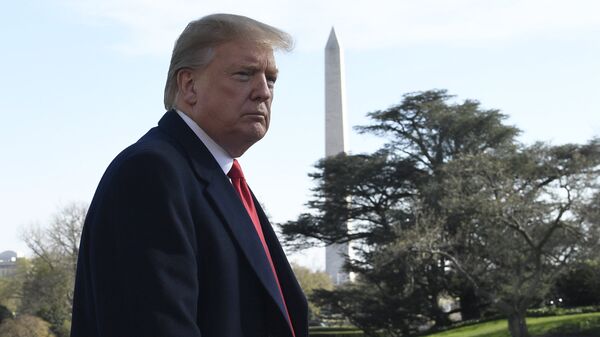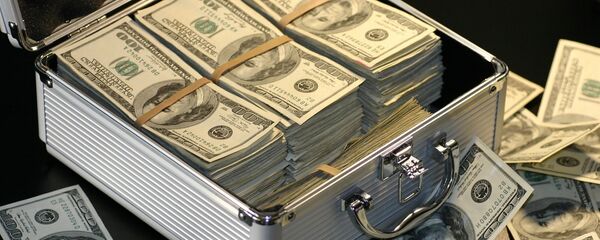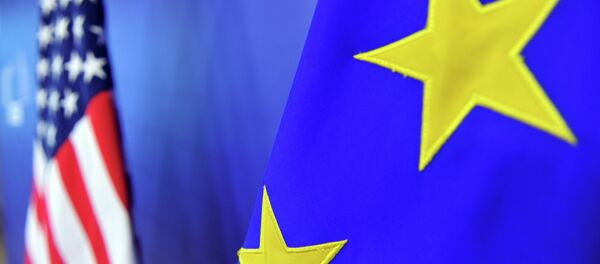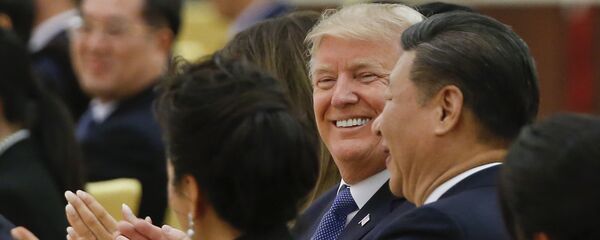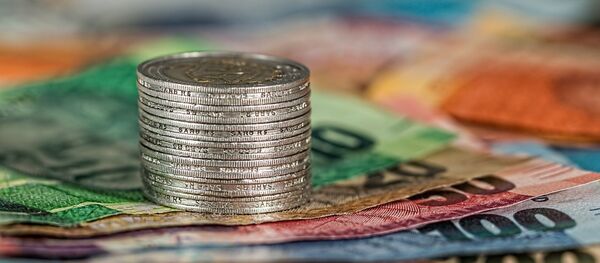The recent row erupted over the World Trade Organisation's conclusion, which was released in 2018, that the bloc provided illegal subsidies to aerospace firm Airbus which caused "adverse effects" to US rival Boeing. The case has been in litigation for 14 years.
As former US trade official Jennifer Hillman remarked, Trump's tariff announcement was made with "fanfare and hoo-ha" which could create a great deal of chaos in the market.
The World Trade Organization finds that the European Union subsidies to Airbus has adversely impacted the United States, which will now put Tariffs on $11 Billion of EU products! The EU has taken advantage of the U.S. on trade for many years. It will soon stop!
— Donald J. Trump (@realDonaldTrump) 9 апреля 2019 г.
Trump's New Tariffs 'is Bad News for Sure'
Commenting on the issue, Kevin Dowd, a British professor of finance and economics, suggested that Trump's move may lead to the escalation of a trade war between the US and EU.
"This development is not unexpected, but it is bad news for sure," Dowd told Sputnik. "They mark another notch up in the escalating EU-US trade war and this bad for both sides. I cannot emphasise often enough that no country should ever get involved in such disputes as the imposition of tariffs is self-harm. Yes, when one side imposes tariffs it hurts exporters from the other side, but it hurts its own consumers too!"
The scholar admitted, however, that "the impact [on the EU] should be very diverse and significantly large" because the US' new list of goods that will be subject to the tariffs includes vast variety of products — from jet parts to cheese.
For his part, Claude Barfield, a former consultant to the office of the US Trade Representative specialising in international trade policy, opined that "anything that Trump says given the figure ($11.2 billion)" is "not believable".
"The problem here is that this case or fight has been going on for almost two decades between the United States and Europe over Airbus and Boeing…. And now they are fighting over whether or not either country has lived up to the ruling… It's always hard to know how it will play out. I certainly would not pay much attention to the actual numbers that Trump has put on", Barfield said.
According to him, this case is not similar to previous ones when the Trump administration unilaterally slapped additional tariffs on foreign producers. This time the White House will "utilise" the WTO, he presumed.
Is Trump Fanning New Trade War?
In response to the Trump administration's tariff threats, an Airbus spokesman said that there was no "legal basis" for the US' tariff plans, and warned that the bloc would consider "even greater countermeasures."
He explained that "according to the WTO Dispute Settlement (DS) portal regarding this case, compliance proceedings should be done by a compliance panel within the Dispute Settlement Body (DSB)". However, this panel "informed the DSB that due to the complexity of the dispute, the compliance panel did not expect to complete its work before the end of 2019", the economist pointed out.
"So we have still until end of this year to wait for the procedure, and the US cannot implement its remedies procedure on its own without a final decision by the compliance panel, that is simply illegal and a violation of WTO agreements", Ghodsi underscored, suggesting that "in that case the EU might retaliate quickly raising some tariffs on imports from the US, which is only increasing the tensions, and should be avoided by both sides".
Barfield shares Ghodsi's concerns, presuming that the EU would jump at the opportunity to impose additional taxes on US products in response to Trump's tough measures. "So you'll have a larger trade war," he remarked, adding that the case would be resolved through the WTO in the first place.
EU is Between a Rock and a Hard Place
The EU may find itself between a rock and a hard place amid the Trump-led trade war and anti-Moscow sanctions that deprived the bloc of opportunity to sell goods in Russia. The question then arises as which region the EU is looking at for export now.
"The EU should be looking at free trade deals with all countries, including Russia. It should also abandon sanctions against Russia which are both unjustified and counterproductive", Dowd said.
Commenting on the matter, Ghodsi admitted "that the EU and indeed many other countries like China, Russia, and Iran right now are under US economic pressures".
"However, I think this fatigue is faded away soon and the US might face some trouble in its own domestic economy while the cheap imports becoming too expensive could effectively hamper its economic growth", the economist believes. "For the EU it could better initiate trade with other countries as we observe it has now very good talks with China to overcome challenges. Also with many other countries like Australia. With some other countries like Japan and Korea, the EU has trade agreements which are showing to be effectively positive".
Is a Win-Win Solution Possible?
It appears that "neither side has the sense to see what is going on or recognise what is best for their own countries", the professor presumed.
Ghodsi echoed the British academic by saying that "these kinds of issues need real good thinking, strategy planning, and optimising the win-win solutions".
"By pushing each other and imposing additional cost to each other, not only the optimal solution is not wisely chosen, but also it gives a short-run adjustment cost that will cause additional panic in the markets of both parties and in global market", the economist stressed.
The views and opinions expressed by the speakers do not necessarily reflect those of Sputnik.

